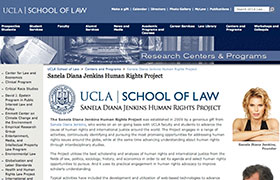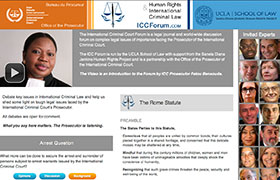- SOS Children’s Village Daycare, Goražde
- Money for medicine can help undo the effects of rickets on children as they grow up.
- Vrtić SOS Dječijeg sela, Goražde
- Novcem je moguće kupiti lijekove koji otklanjaju posljedice rahitisa kod djece za vrijeme njihovog odrastanja.
Inside Remzija Arapovic’s small disheveled home, the walls are more gray than white, and six of the kids run around barefoot on the creaky wooden floor. Though the living conditions are marginal at best, Remzija’s son Jasmin walks over to a flowerpot made out of Coke’s bottle, touches an inch tall plant that his brother had planted, and says, “It will grow.”
Growth comes in many forms. Almost all of Remzija’s children suffer from one medical condition or another, but three are afflicted with a rare disease called rickets. Mostly afflicting children, rickets softens the bones when there is a deficiency of vitamin D, phosphorus, or calcium.
For the Arapovic children, physical growth and health has been greatly stunted, but for a family living in poverty, the fighting chance to grow intellectually, professionally, and personally cannot come without first meeting the basic needs of physical health.
For many years of her children’s upbringing, Remzija had to choose whether she should buy bread or medicine for her kids. Their house was once renovated, but it’s now full of mildew. She’s been raising the seven kids, ages 4 to 17, under the most difficult conditions where, she says, it is hard to keep them healthy.
“Their hands and legs were completely crooked,” she explains.
In 2009, Remzija received help through the SOS Children’s Village in Goražde where a donation from the Sanela Diana Jenkins Foundation for Bosnia and Herzegovina was invested into the Al-Hana pharmacy. This, in turn, provided the necessary medicine to assist in the normal development of three of Remzija’s children.
Even with that help, Remzija explains that times have always been tough with such a big family. “Sometimes if I received help, I didn’t know how to divide it seven ways.”
Though the social welfare system is familiar with Remzija’s situation, she has never received any funding or help of any kind other than that from the Sanela Diana Jenkins Foundation.
“We usually pick the families to offer help if we know their hardships,” says Adisa Adzem, a social worker at SOS Children’s Village.
Now with this assistance, and several years after the donations, the signs of under or misdeveloped hands and legs are less and less visible. Though still in need of other assistance, Remzija feels fortunate and is grateful for receiving the medicines she needed to help cure her three children with rickets.
“Now that they’ve grown, you can hardly tell they ever have rickets,” Remzija says.
Article and photos by photojournalist Dijana Muminović
Unutar malog i neurednog doma Remzije Arapović zidovi su više sivi nego bijeli, dok šestero bosonoge djece trčkara po škripavom drvenom podu. Iako dok su uslovi u kojima žive u najmanju ruku loši, Remzijin sin Jasmin prilazi saksiji za cvijeće napravljenoj od boce Coca-Cole, dodiruje biljku visine 2,5 cm koju je zasadio njegov brat i kaže “Narašće.”
Rasti se može na mnogo načina. Gotovo sva Remzijina djeca imaju neku bolest, a troje njih boluje od rijetke bolesti koja se zove rahitis. Rahitis najčešće pogađa djecu i to tako što slabi njihove kosti. Nastaje usljed nedostatka vitamina D, fosfora ili kalcija.
Fizički rast i zdravlje djece iz porodice Arapović prilično su krhki, ali za porodicu koja je siromašna, borba za intelektualni, profesionalni i lični razvoj ne može doći prije nego što se zadovolje osnovne potrebe u vezi sa fizičkim zdravljem.
Dok je odgajala svoju djecu, Remzija je morala da bira između kupovine hljeba i kupovine lijekova za djecu. Njihova kuća je nekada bila renovirana, ali sada je puna plijesni. Remzija je odgojila sedmoro djece uzrasta od 4 do 17 godina u jako teškim uslovima i prema njenim riječima, bilo je teško sačuvati njihovo zdravlje.
“Ruke i noge su im bile potpuno iskrivljene,” kaže ona.
Godine 2009. Remzija je dobila pomoć od SOS Dječijeg sela Goražde. Radilo se o donatorskim sredstvima Fondacije Sanela Diana Jenkins za Bosnu koja su investirana u apoteku Al-Hana. Na ovaj način osigurani su neophodni lijekovi kako bi se pomogao normalan razvoj troje Remzijine djece.
I pored ove pomoći, Remzija kaže kako je uvijek bilo teško izdržavati ovako veliku porodicu. “Ponekad kada dobijem pomoć ne znam kako da je podijelim na sedam dijelova.”
Iako su ustanove za socijalnu zaštitu upoznate sa položajem u kojem se nalazi Remzija, ona nikada nije dobila nikakva sredstva niti pomoć bilo koje vrste osim one koju joj je dala Fondacija Sanela Diane Jenkins.
“Obično izaberemo porodice kojima ćemo dati pomoć, ako znamo da se nalaze u teškom položaju,” kaže Adisa Adžem, socijalni radnik u SOS Dječijem selu.
Sada uz ovu pomoć i nekoliko godina nakon donacije, simptomi nerazvijenih ili nepravilno razvijenih ruku i nogu su manje vidljivi. Iako im je i dalje potrebna pomoć, Remzija zna da je imala sreće i zahvalna je na lijekovima koje je dobila, a koji su bili potrebni kako bi se troje njene djece izliječilo od rahitisa.
“Sada kad su porasli, skoro da se i ne primjeti da su ikada imali rahitis,” kaže Remzija.
Autor članaka i fotografija: Dijana Muminović


_50_940x400.jpg)
_30_940x400.jpg)
_40_940x400.jpg)
_40_940x400.jpg)
_40_940x400.jpg)
_40_940x400.jpg)
_BW_30_700x466.jpg)
_BW_40_700x466.jpg)
_BW_40_700x466.jpg)
_BW_30_700x466.jpg)



